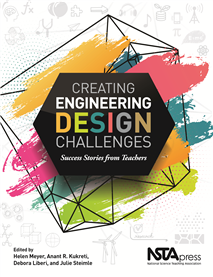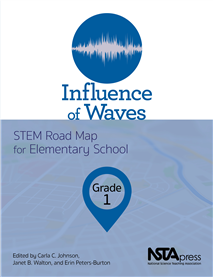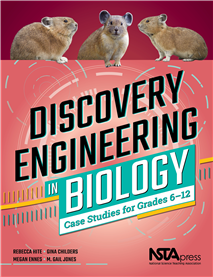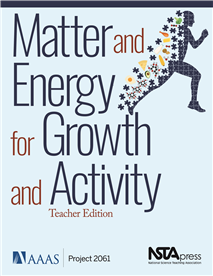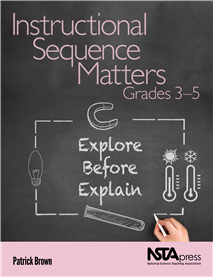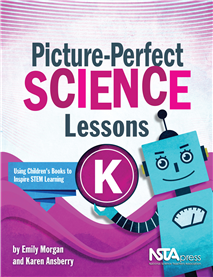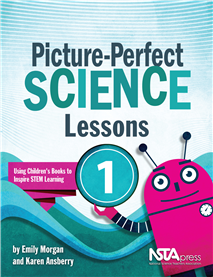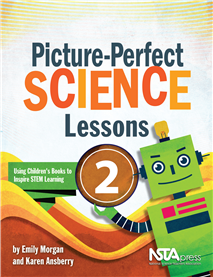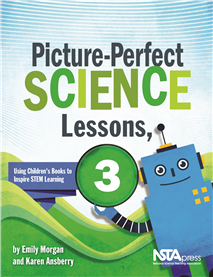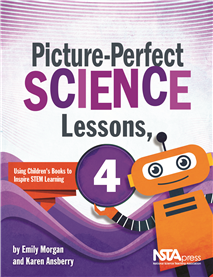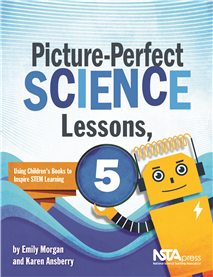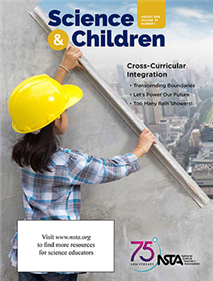All Resources
Journal
Connected Science Learning July-September 2019
Volume 1, Issue 11 Practical Program Evaluation ...
Journal Article
Teaching Environmental Awareness in Baltimore
A national movement, sparked by Richard Louv’s (2005) treatise Last Child in the Woods, has catalyzed collaborations among government agencies, schools, and nonprofit and community organizations to reconnect children with the environment. Research ...
By Sarah Haines, Chelsea McClure, and Symone Johnson
Journal Article
Formative Assessment of STEM Activities in Afterschool and Summer Programs
The positive impacts of STEM (science, technology, engineering, and math) afterschool and summer programs have been well documented and summarized in a number of review papers and books (e.g., Allen, Noam, and Little 2017; Krishnamurthi and Bevan 2...
By Cary Sneider and Sue Allen
Journal Article
Regardless of the setting in which learning takes place, identifying the goals and intended outcomes of an educational experience, then measuring how well that experience achieved them, is becoming more commonplace and is often essential. However, ...
By Sarah Cohn
Book Chapter
Creating Engineering Design Challenges: Success Stories From Teachers (Book Sample)
If you’ve ever wished for advice you can trust on how to make science and math more relevant to your middle or high school students, Creating Engineering Design Challenges is the book for you. At its core are 13 units grounded in challenge-based le...
Book Chapter
Influence of Waves, Grade 1: STEM Road Map for Elementary School (Book Sample)
Available for Pre-order. This product will be released in OCTOBER 2019What if you could challenge your first graders to create instruments they can play in their own “Show Me the Waves” musical show? With this volume in the STEM Road Map Curric...
Book Chapter
Discovery Engineering in Biology: Case Studies for Grades 6–12 (Book Sample)
Show your students how amazing it can be to just “see what will happen” when they blend biology, engineering, and serendipity. Focusing on innovations sparked by accidental or unexpected observations, the case studies in this resource are a livel...
Book Chapter
It’s Still Debatable! Using Socioscientific Issues to Develop Scientific Literacy, K–5 (Book Sample)
It’s Still Debatable! encourages scientific literacy by showing you how to teach the content and thinking skills K–5 students need to explore real-world questions like these: • Is football too dangerous for kids? • Do we need zoos? �...
Book Chapter
Making Sense of Science and Religion: Strategies for the Classroom and Beyond (Book Sample)
“I have been hoping for a volume like this for a long time. Making Sense of Science and Religion marshals the best scholarship on science and religion toward the deeply practical aim of helping science teachers understand what is at stake for both ...
Book Chapter
Matter and Energy for Growth and Activity, Teacher Edition (Book Sample)
How do our bodies manage to heal wounds, build the stamina to run marathons, and give us the energy—even while we’re sleeping—to keep us alive and functioning? Matter and Energy for Growth and Activity prompts high school students to explore fa...
Book Chapter
Instructional Sequence Matters, Grades 3–5: Explore Before Explain (Book Sample)
Instructional Sequence Matters, Grades 3–5 is a one-stop resource that will inspire you to reimagine how you teach science in elementary school. The book discusses two popular approaches for structuring your lessons: POE (Predict, Observe, and Expl...
eBook
Picture-Perfect Science Lessons, First Grade (e-book)
Picture Perfect Science: Grade 1 combines the appeal of children’s picture books with standards-based science content. The series contains lessons, complete with student pages and assessments that use picture books to guide instruction. Lessons a...
eBook
Picture-Perfect Science Lessons, Third Grade (e-book)
Picture Perfect Science: Grade 3 combines the appeal of children’s picture books with standards-based science content. The series contains lessons, complete with student pages and assessments that use picture books to guide instruction. Lessons a...
eBook
Picture-Perfect Science Lessons, Fourth Grade (e-book)
Picture Perfect Science: Grade 4 combines the appeal of children’s picture books with standards-based science content. The series contains lessons, complete with student pages and assessments that use picture books to guide instruction. Lessons a...
eBook
Picture-Perfect Science Lessons, Fifth Grade (e-book)
Picture Perfect Science: Grade 5 combines the appeal of children’s picture books with standards-based science content. The series contains lessons, complete with student pages and assessments that use picture books to guide instruction. Lessons a...
Journal Article
Let’s Take This Show on the Road!
A STEM-focused Antiques Roadshow engages second- and third-grade students....
Journal Article
Second-grade students build water diversion structures to protect plants...
Journal Article
Integrating science and social and emotional learning improves collaborative discourse and science understanding....
Journal Article
Formative Assessment Probes: Supporting Literacy Capacities of Speaking and Listening
This column focuses on promoting learning through assessment....




